Kinderen en jongeren zijn continu in het nieuws. De meest lezenswaardige/opvallende berichten uit andere bronnen verzamel ik wekelijks in een post met ‘kortjes’ – oneliners met een linkje naar het oorspronkelijke artikel. KLIK & LEES MEER:
Marketing to millennials takes a special kind of approach: “They have very high standards, they’re socially conscious, they want to engage with brands that reflect their values — they really keep you on your toes” (CIO)
There seems to be a new nickname gaining traction for the hyper-diverse, tech-savvy post-millennial cohort that will soon start spilling into adulthood: the grimly descriptive ‘homeland generation’ — people tend to think of the character of this generation as being ‘super millennials’ (Mashable)
DDB has released data from its US Life Style Study that reveals attitude and behavioral differences among mothers of different generations, with millennial moms showing a surprising preference for more traditional gender roles compared to their boomer and Gen X counterparts (The Drum)
BabyCenter teamed up with the Interactive Advertising Bureau to poll mostly first-time, millennial moms on how motherhood changed the way they thought about brands and used media: “U.S. millennial moms are spending more time with media overall, due to mobile” (Adweek)
A survey from Pew Research that offers national detail on global religious trends shows that Americans are increasingly identifying themselves as religiously unaffiliated; Millennials are the group most likely to identify as unaffiliated (The Washington Post)
According to Havas Worldwide’s iBody Study, 0ne in three millennials are so displeased with their appearance they wish they could just exchange their entire bodies; social media is partly to blame for this dissatisfaction (MediaPost)
In spite of high-visibility data breaches, 44% of millennials in the United States believe that their personal information is kept private “all” or “most of the time” by the businesses or companies they do business with — this is the highest of all major U.S. generational group (Gallup)
A new poll shows just how important smartphones have become to those going to concerts and sporting events; while ticket holders may have paid to get into the show, 31% revealed that they spend at least half of the time at the event using their phones (Forbes)
Facebook CEO Mark Zuckerberg believes more kids need to be allowed to play video games if they want: “I do think this dynamic around kids growing up, building games, and playing games, is an important one because I think this is how a lot of kids get into programming” (Business Insider)
Minecraft, the online world that most parents simply don’t understand, is now officially the most watched game of all time on YouTube; the game has also become the most searched-for term, behind ‘music’ (BBC News)
A study in Journal of Early Adolescence shows that teens who frequently media multitask report having more problems staying focused, controlling inappropriate behavior, and switching efficiently between different tasks (BiteScience)
Andrew Watts: “On January 2nd I published on Medium a piece called A Teenager’s View on Social Media, in which I surveyed briefly the apps that figured prominently in my life — the post went viral and would soon take over my life” (Medium)
Ishan Haque: “I’m writing from my own uses and observations as a 15-year-old teenager from Australia: Snapchat is built for digital natives; not for the mobile first but the mobile only generation” (Business Insider)
A new startup called Tinkergarten, now backed by half a million in seed funding, is offering a technology platform that enables a distributed workforce to host play-based learning classes for kids that take place outdoors in parks and other green spaces (TechCrunch)
Evidence suggests that parents are really bad at telling when their kids are unhealthily overweight — new research in Child Obesity takes this depressing finding a step further: not only are parents bad at this, but they’re getting worse (Science of Us)
In the pantheon of mythical creatures, one character has been curiously lost to history, though not to herstory — the Period Fairy, who visits girls when they get their first period; HelloFlo tells the Period Fairy’s story in a short mockumentary (Adfreak)
Is U.K. milk brand Cravendale telling us something about the contents of the white stuff? The hero of its latest ad reminds us more of a dude in an alcohol ad, all in the name of giving milk drinking a groovy new makeover (Creativity)
[youtube http://www.youtube.com/watch?v=B-MliUnwT0Y]McDonald’s has come under fire for airing a Happy Meal ad that too heavily focused on its Teenie Beanie Baby Boo toy rather that the food itself (The Drum)
Heineken has launched a new cider brand blended with spirits, as it looks to appeal to young digital natives who ‘don’t follow the crowd’; Blind Pig is inspired by the underground drinking scene of the 1920s (Marketing)
KitKat komt met 72 verschillende soorten ‘breaks’ op meer dan 400 exclusieve uitgaves van zowel de bekende rechthoekige repen, als de Chunky-repen; naast de ‘YouTube break’ komen er repen met ‘me time break’ en ‘sporty break’ (Adformatie)
De avondmaaltijd is hét moment om gezellig samen te zijn en aandacht aan elkaar te besteden; in veel Nederlandse gezinnen is het nog altijd de vrouw die de meeste maaltijden op tafel zet, bovendien ziet bijna driekwart van de vrouwen zichzelf als een (zeer) goede kok (Motivaction)
Uit onderzoek blijkt dat een jongere vaak dezelfde ongezonde eetgewoonten heeft als zijn vrienden; als leeftijdsgenoten in zijn of haar netwerk ongezond eten, eet de jongere zelf ook ongezonder (Voedingscentrum)
Eurostat heeft onlangs het onderzoeksrapport Being young in Europe today gepubliceerd; het onderzoek schetst een beeld van het leven van Europese jongeren op het gebied van familie, werk, studie, vrije tijd en internet (Alles over jongeren)
Halina Reijn is ongewild kinder- en partnerloos: “Het feit dat ik het heel graag wil, maar dat het niet lukt, en dat ik daar waanzinnig verdrietig om ben, is blijkbaar niet geloofwaardig, of te pijnlijk voor mij en mijn omgeving om onder ogen te zien” (De Morgen)
Wereldwijd dragen steeds meer mensen een bril om ver scherp te kunnen zien; in China bijvoorbeeld, heeft ongeveer 90% van de jongeren een bril nodig, maar ook Europeanen dragen steeds vaker een bril (Knack)
Sinds het verhogen van de alcoholleeftijd in januari 2014 zijn er 579 minderjarigen beboet voor het kopen of drinken van alcohol; uit cijfers van het Centraal Justitieel Incassobureau (CJIB) blijkt dat er opmerkelijke verschillen tussen de gemeentes zijn (NU.nl)
Er wordt minder alcohol gedronken in de geïndustrialiseerde landen, meldt de Organisatie voor Economische Samenwerking en Ontwikkeling, maar het fenomeen ‘bingedrinken’ bij jongeren bereikt volgens de Oeso “onrustwekkende” hoogtes (De Morgen)
De politie in Zwitserland is een wel heel schokkende campagne gestart om mensen bewust te maken van het gevaar van social media in het verkeer; de 24-jarige Jonas, die druk in de weer is met zijn telefoon, wordt plotseling geschept door een voorbijrazende auto (Metro)
De bevolking in de grote steden blijft maar groeien; oorzaak is dat meer jongeren naar de stad trekken en daar blijven, ook als ze eenmaal een gezin hebben gesticht (AD)
Het EenVandaag-jongerenopiniepanel heeft geopenbaard dat scholieren meer onderwijs over de EU willen, maar er waren kennelijk zo weinig laagopgeleiden bereid de vragen in te vullen dat hun antwoorden niet zwaarder meegeteld konden worden (The Post Online)
De gemiddelde golfer wordt steeds ouder — tijd voor jong bloed, en dus gaat de Nederlandse Golf Federatie golfen aantrekkelijker maken voor jongeren, met banen die minder duur zijn en dichter bij de stad liggen (RTL Nieuws)
Filosofieonderwijs is geen luxeproduct voor wat vwo-scholieren, maar essentieel voor alle schooltypen; voorzien we kinderen daar niet van, dan is de kleuter van nu in 2032 een hulpeloze burger in een uitgeklede democratie, betogen vier filosofen (de Volkskrant)
Hoezo zesjescultuur? Nederlandse scholieren horen bij de beste leerlingen van de wereld, blijkt uit een onderzoek van het economische onderzoeksbureau OECD (RTL Nieuws)
Steeds meer jongeren gebruiken adhd-medicijn Ritalin bij het studeren als concentratiebooster; bijna 4,5% van de jongeren slikte in 2013 een medicijn voor adhd (Het Parool)
Cyberpestkoppen zijn ervan overtuigd dat leeftijdsgenoten pesten via het internet en de gsm goedkeuren, en geven aan dat ze vaak druk ervaren om er aan mee te doen, blijkt uit onderzoek van Sara Pabian van UAntwerpen (De Standaard)
En tot slot, klik hier om alles te lezen over de opkomst van emojis (Digiday)


I see you don’t monetize your blog, i think there is
one opportunity to earn additional money on your site,
search in google for- idol4jp makes money